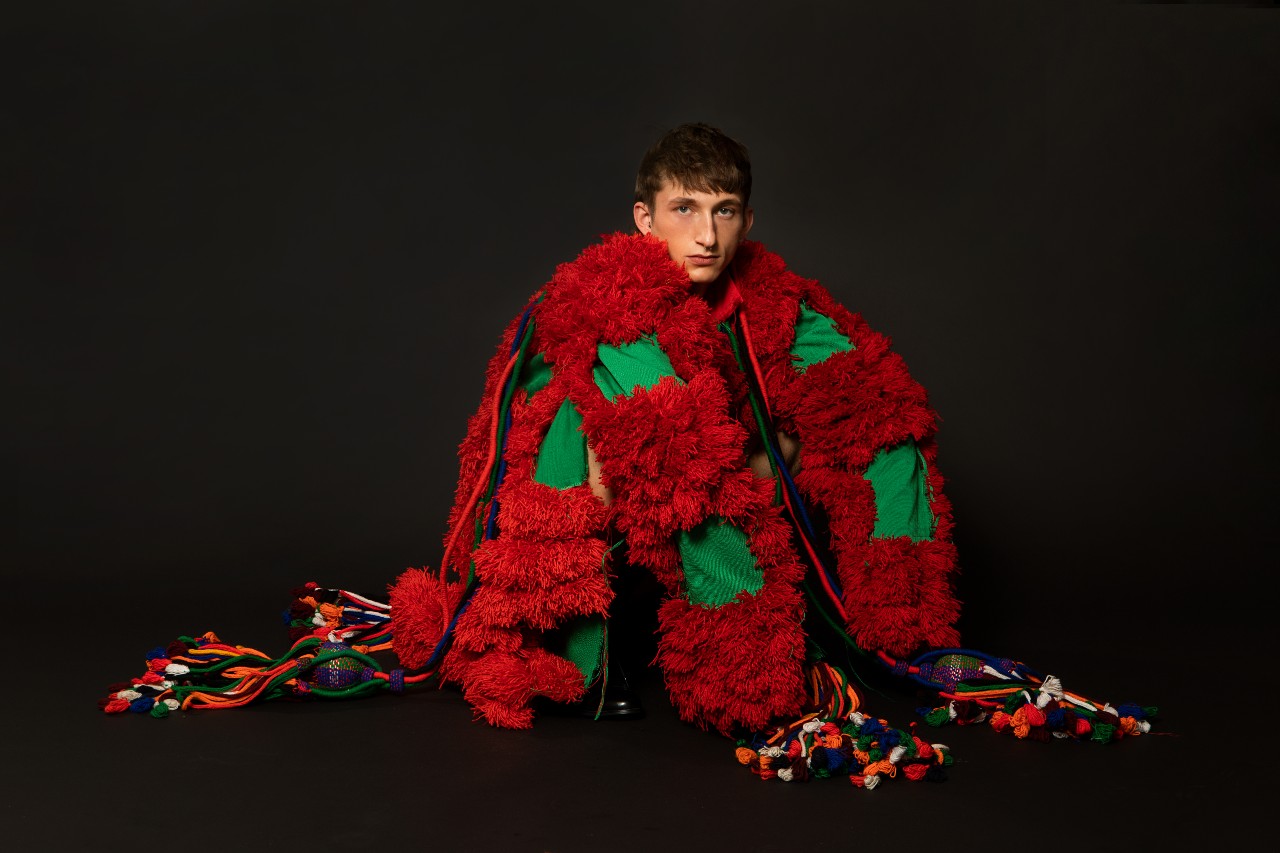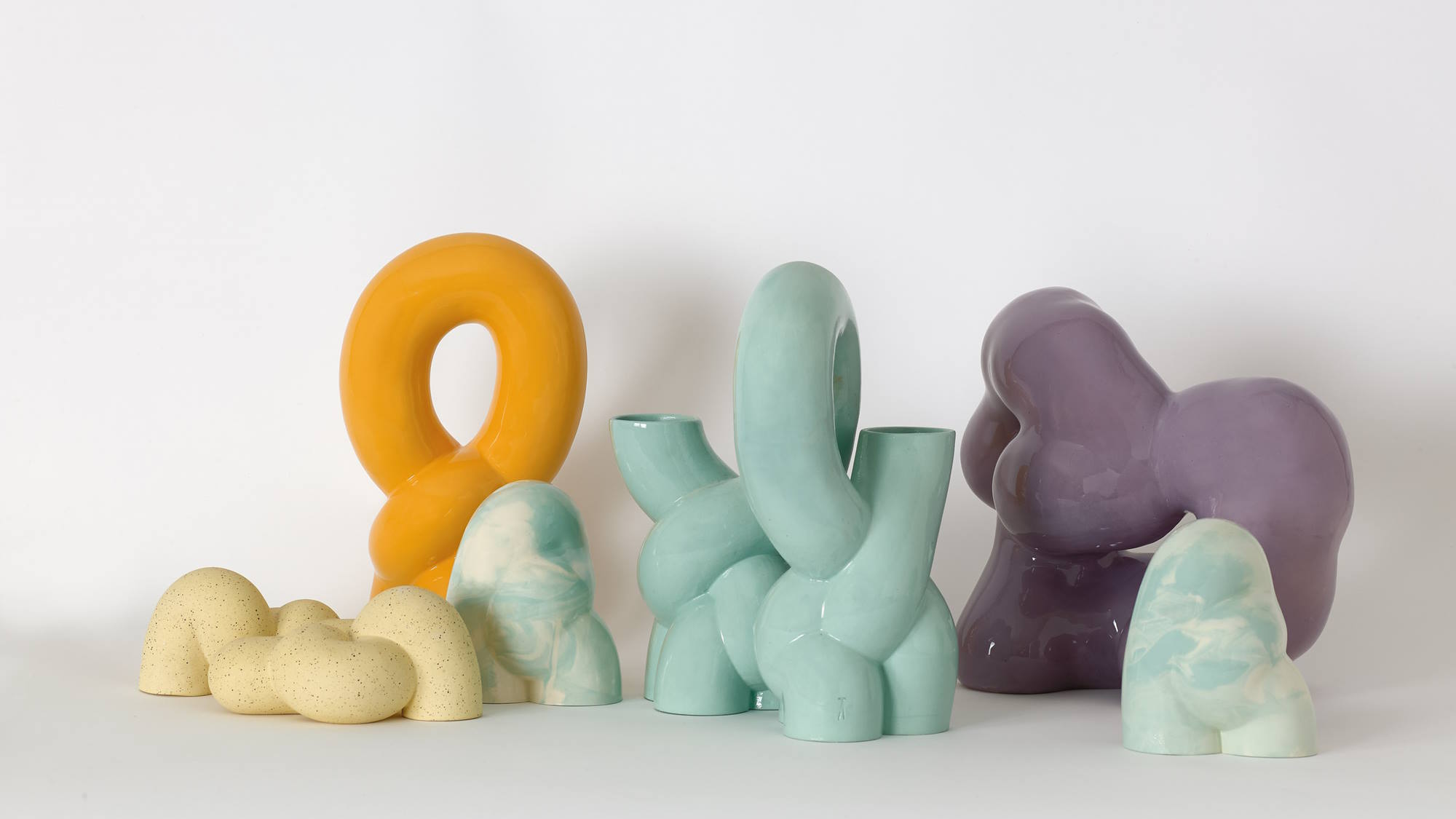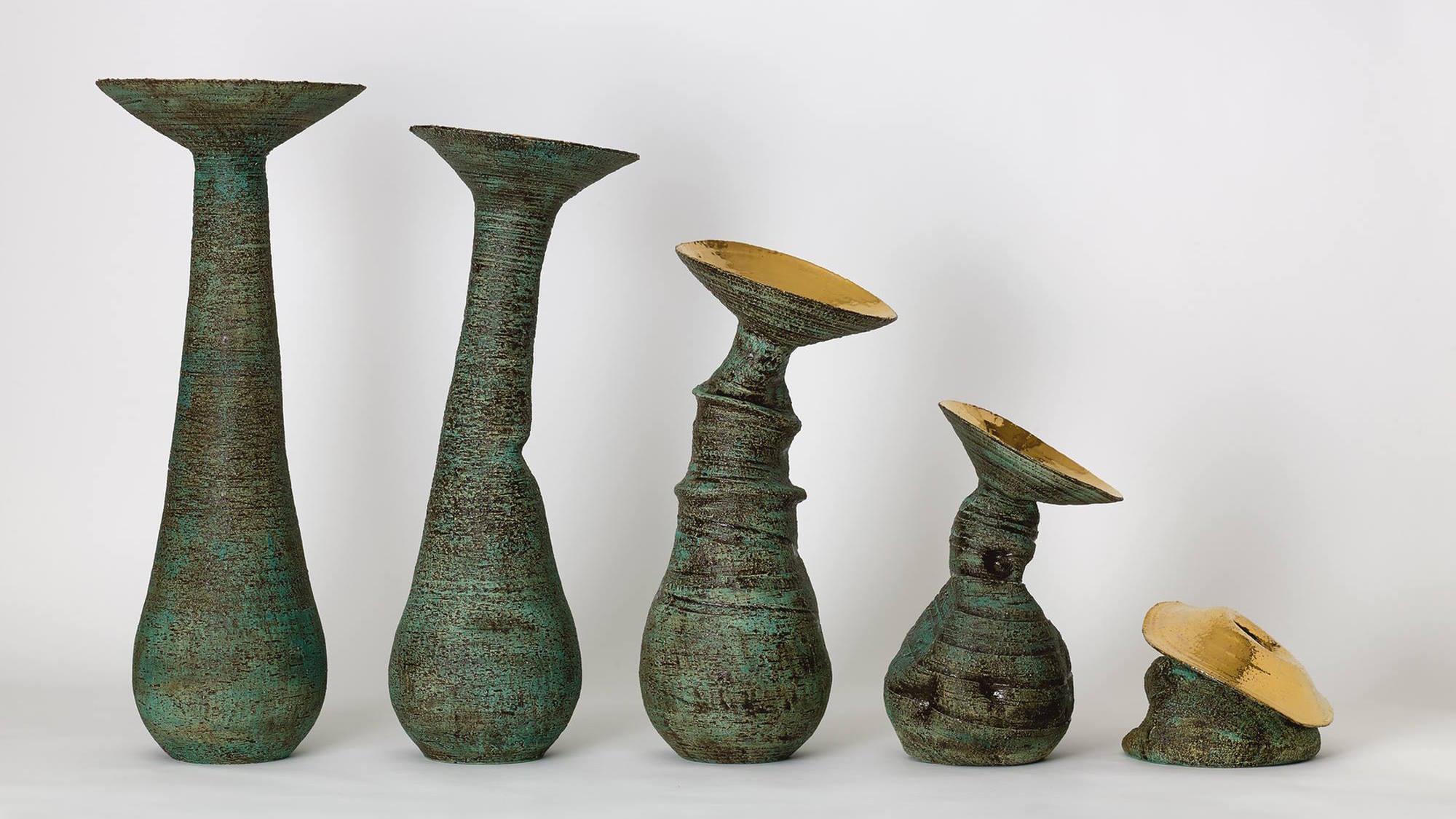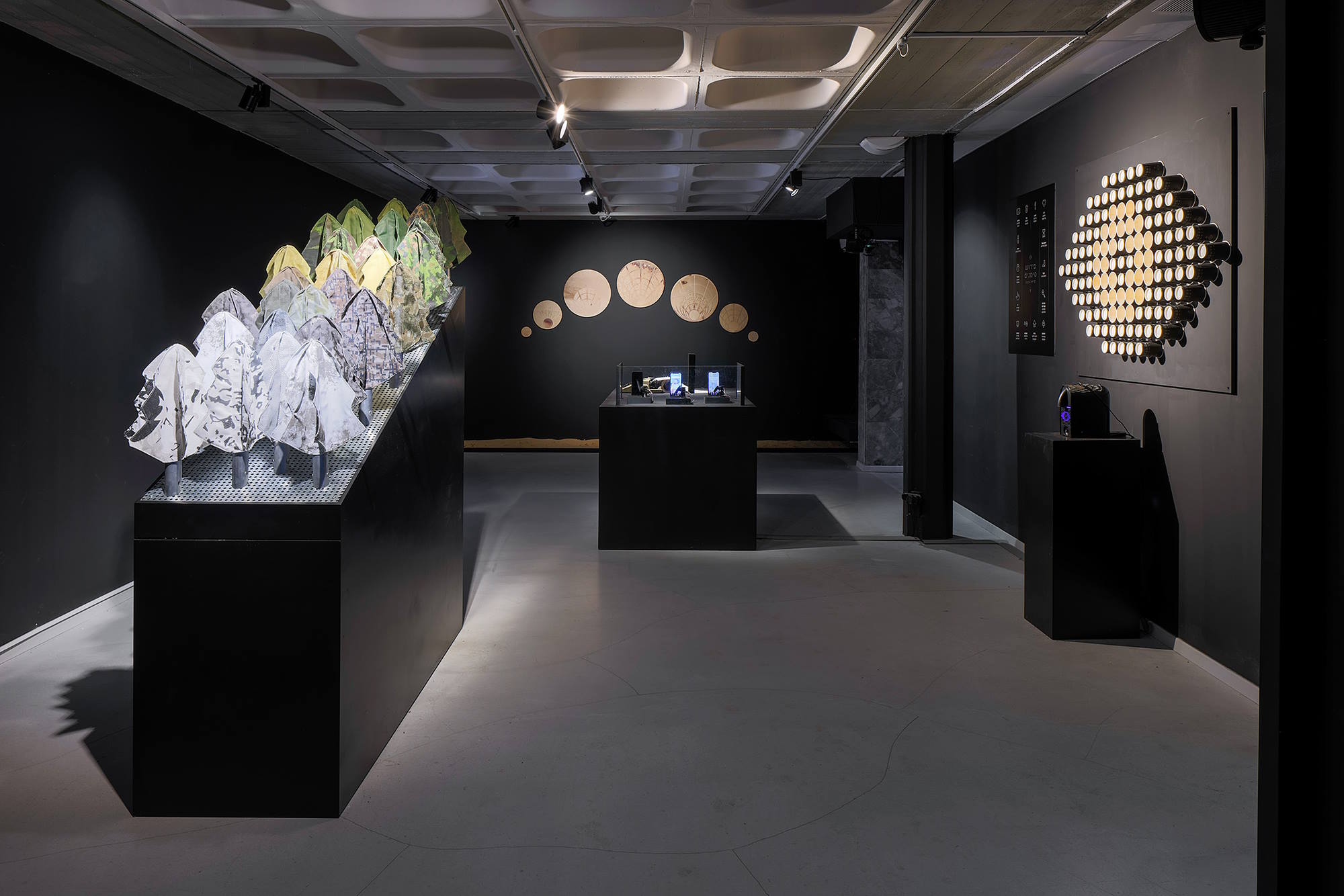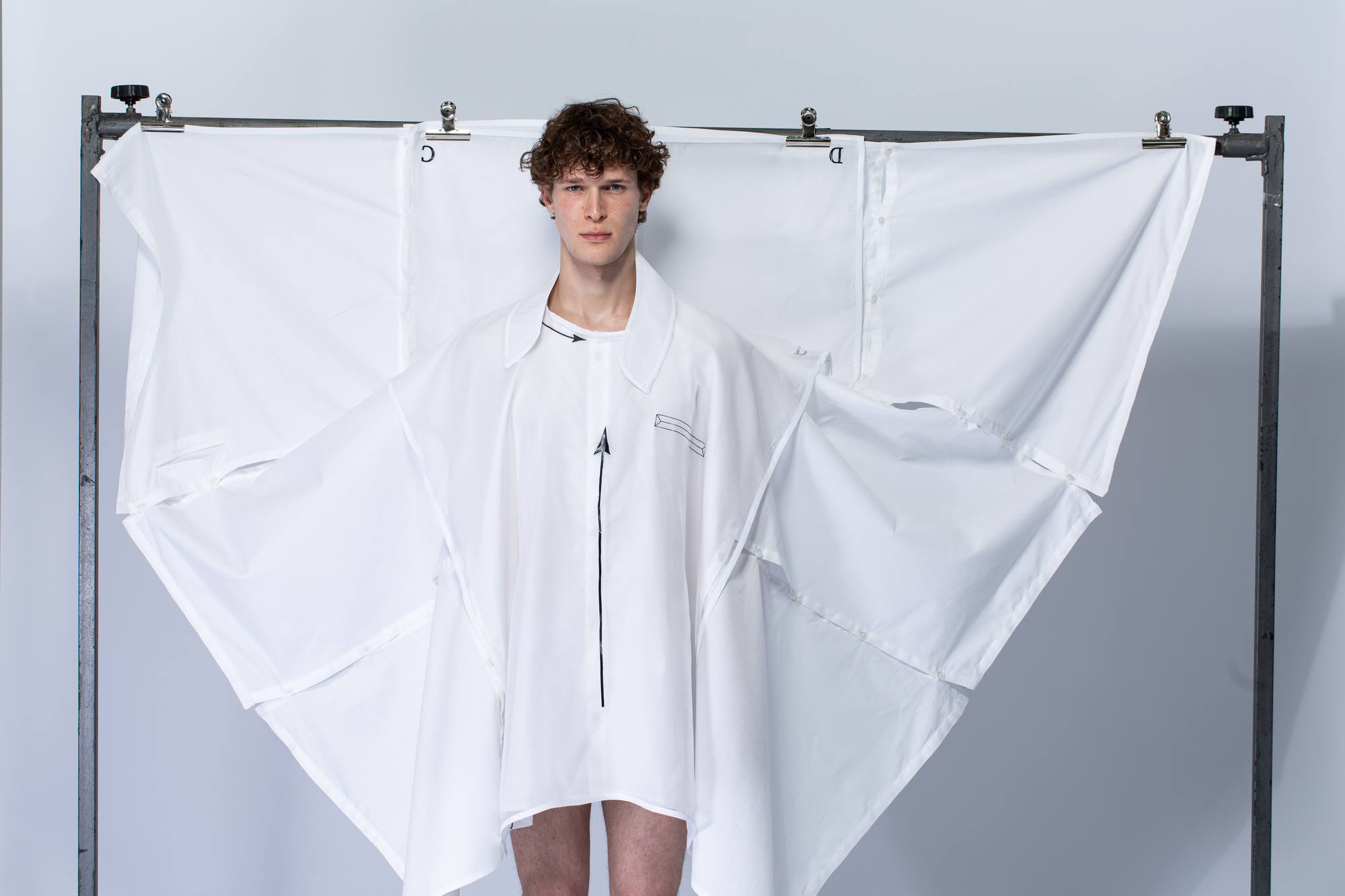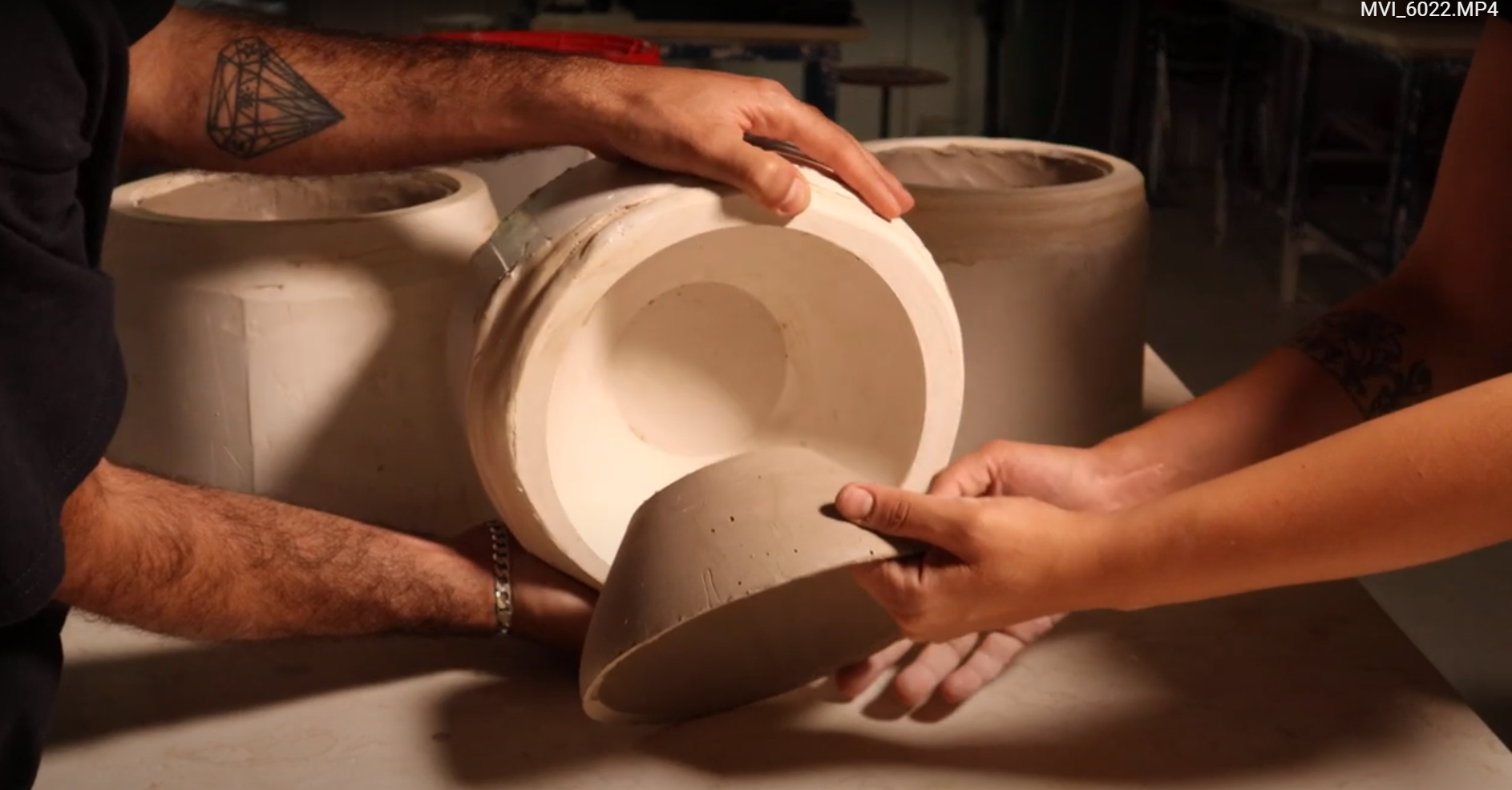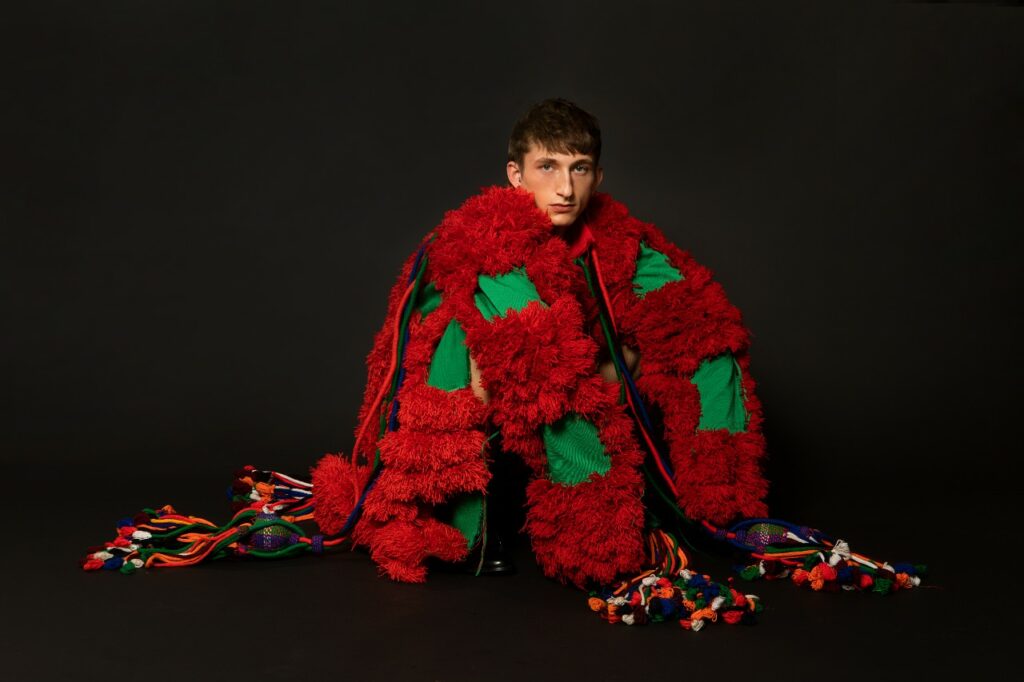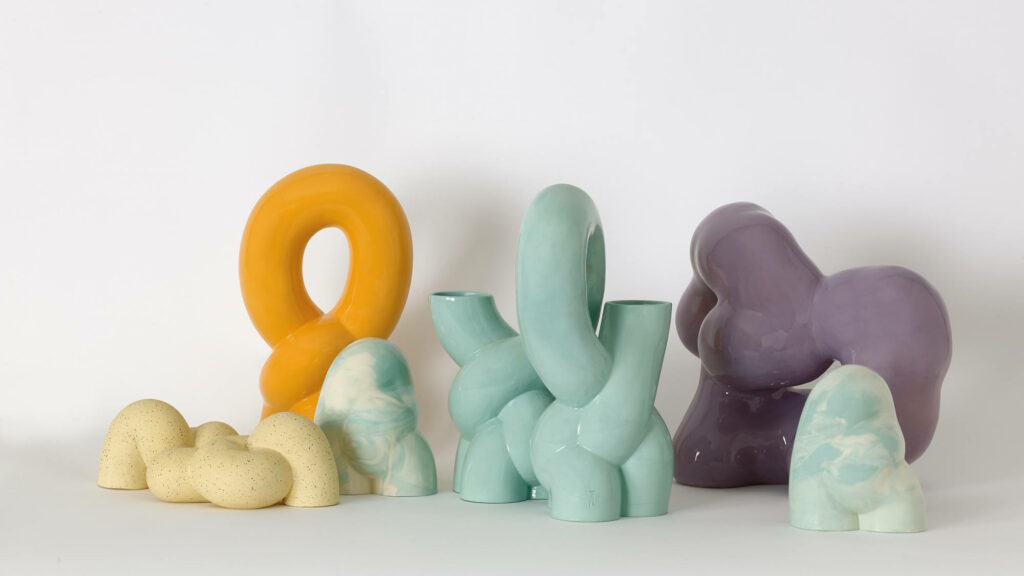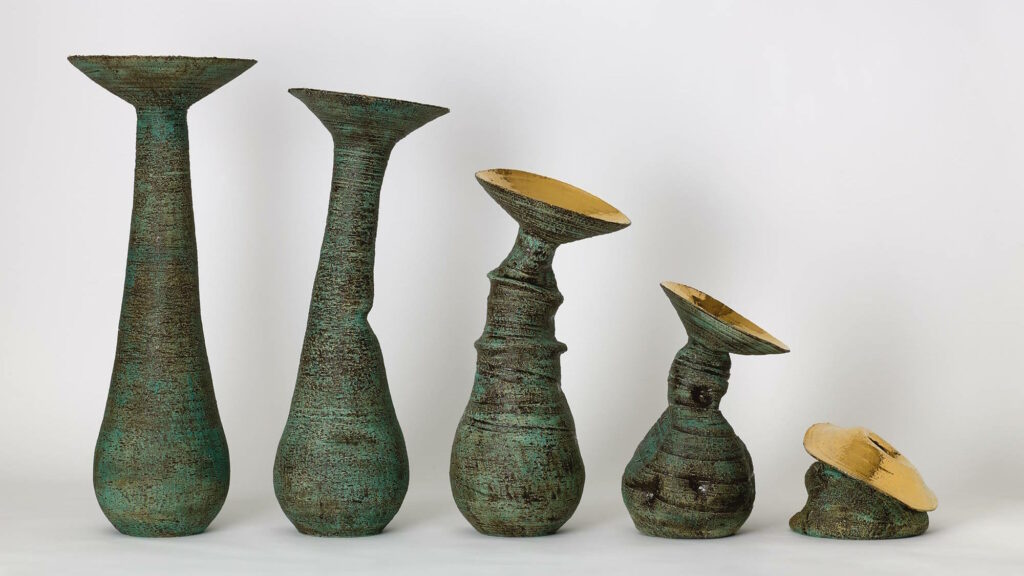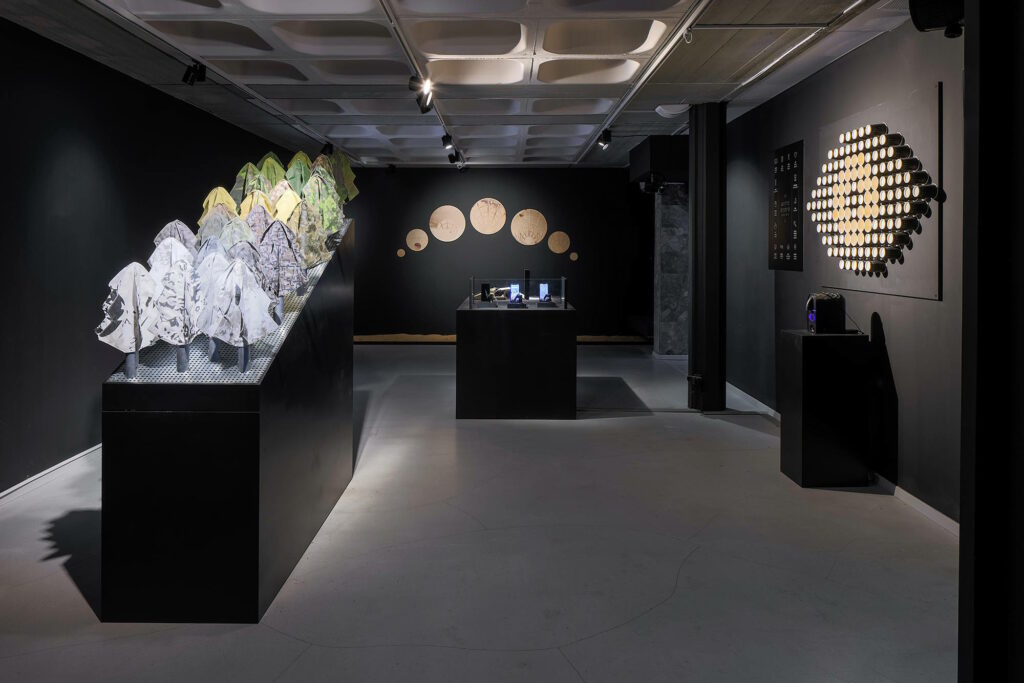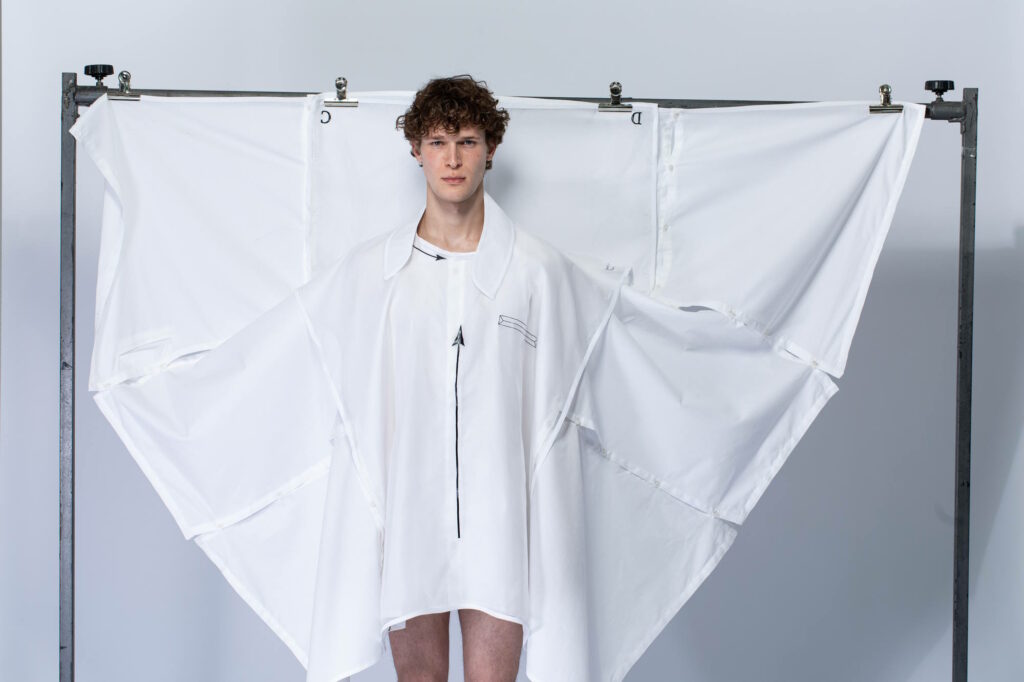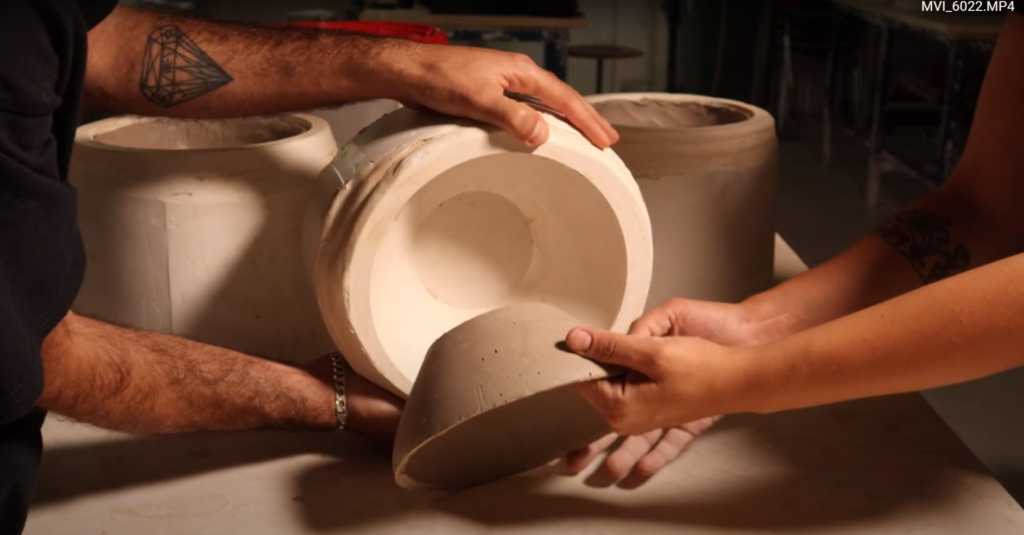The Tel Aviv Biennale of Crafts & Design offers a cutting-edge view of contemporary crafts and design in Israel today. The Second Biennale, whose chosen theme is “What Is the Measure of Man?” focuses on the human condition at the threshold of a new age. The Biennale examines the different circles that surround us, and our power to impact the future of the place in which we live.
This year, in the spirit of the Biennale’s global theme, some 250 works by prominent Israeli artists are presented alongside a selection of craft and design works by international artists responding to ancient cultures and traditions.
The question “What Is the Measure of Man?” is ascribed to the fifth-century BCE Greek philosopher Protagoras, who stated that “Man is the measure of all things.” This title serves as the Biennale’s point of departure for exploring the influence of creative individuals on the surrounding world, as well as on their inner world. The urgent need to respond to winds of change and to a reality being transformed at an accelerated pace raises questions concerning the role of creative endeavors, which explore and redefine their sphere of action, as well as their own ability to offer a cure for a sustainable world and a humanist future.
Standing at a destabilizing crossroads in search of refuge, we gaze up at a blue, cloud-strewn sky and take pleasure in the moment. This is a form of pleasure intermingled with sadness and worry, since the sky may as well change. The skies above future generations might be a murky color rather than blue, while things that were thus far taken for granted no longer are. This is a moment of nostalgia for the present: we are embracing it while tensing in anticipation of an impending filled with complex challenges that pertain to all aspects of our existence.
The Biennale offers different perspectives on the question: “What Is the Measure of Man?” In the spirit of the ancient philosophers, the museum grounds give rise to miniature worlds: the gallery of the Rothschild Center presents narrates four chapters of a story within a “white cube”; the permanent pavilions: Ceramics, Nehusthan, Glass, Man and His Work Center and the Crafts Arcades weave dialogues that move across time, space, and different countries. The museum’s outdoor spaces and the Observation Tower present various habitats, works concerned with research, science, nature and biological diversity, works that change over time, and others concerned with sound, light and movement.
Throughout the period of the Biennale, the Migdal Gallery will host three consecutive academic labs by leading Israeli design institutions. The participants in these labs present unique projects inspired by the Biennale theme, while adopting a dynamic, research-centered approach that goes beyond existing boundaries.
The Tel Aviv Biennale of Crafts & Design is a natural extension of the ongoing focus of MUZA, Eretz Israel Museum, on local material culture. The Biennale presents an up-to-date picture of contemporary crafts and design in Israel, including ceramics, glass, jewelry making, textile and paper –in intertwined displays.
The Tel Aviv Biennale of Crafts & Design is held in collaboration with the Ceramics & Crafts Association of Israel; leading academic institutions – Bezalel Academy of Arts and Design, Jerusalem; Shenkar – Engineering. Design. Art; and HIT – Holon Technological Institute, as well as with the Municipality of Tel Aviv-Jaffa.
Watch the America-Israel Friendship League Special Webinar
Curator Henrietta Eliezer Brunner shares pieces from the exhibit including ceramics, glass, jewelry, textile, paper, metal, wood and more.
A representative of the Material Flow Collective – Rakefet Kenaan, showcases some works created by the group composed of designers, creative artists, academic researchers and lecturers.
The Academic Labs in the Observation Tower
Throughout the duration of the Biennale, the gallery on the entrance floor of the Observation Tower will host a consecutive series of projects with the participation of three academic institutions: The Master’s Program in Industrial Design (M.Des.), the fashion design department at Shenkar, and the workshop for ceramic design at Industrial Design Department, HIT – Holon Institute of Technology. Each of these institutions has created a wide-ranging project for the lab in response to the Biennale’s overarching theme: What Is the Measure of Man? The labs are characterized by a dynamic, research-oriented approach that tests existing boundaries. Each lab functions differently, with various actions taking place in the exhibition space alongside a permanent display and a public program open to all visitors.
The three academic labs present the complex and multilayered perspective of creative individuals on the contemporary world. They raise questions concerning the existential state and future of humanity, the human body, and material and visual culture, in the context of developing technologies and the shifting ground on which we stand.
Tomer Sapir, Curator of the Academic Labs Program
Bezalel Academy of Arts and Design
The Event Horizon
Where Can We Still Find a Sense of Certainty?
In Israel and abroad, the political system seems unable to stabilize. Science, and the interests that sometimes motivate it, are increasingly doubted, especially since the outbreak of the COVID-19 pandemic. The economic system is becoming chaotic, the media is unable to voice ascertained truths, and its various channels present parallel realities composed of alternative facts. The authority of these institutions of power is dissolving, as the information we consume is not edited, checked or confirmed.
It seems that we are nearing the “event horizon,” that boundary at the threshold of a black hole at which time seems to freeze, and information is no longer accessible to the observer. Technology offers us a post-humanist future in which the seeds of artificial intelligence are now being planted, yet what they might blossom into remains outside the sphere of our control. The absence of anchors disintegrates rational thinking as an organizing social concept, and leads to its abandonment in favor of personal, intuitive decisions often motivated by a combination of internal beliefs and partial, external information. Decisions of this kind, which are moving away from systemic thinking, undermine basic social constructs. Yet if we examine these processes as cultural critics, we will discover that they constantly produce new forms of thought and action.
The exhibition “Event Horizon” seeks to succumb to uncertainty by offering different perspectives located on the same horizon – absurd and constructive, abstract and direct, aesthetic and research-based, while relating to the exhibition space as a one space that enfolds various possibilities, inviting visitors to walk on unstable ground, on the threshold of a black hole.
The Event Horizon collective brings together designers and artists – graduates and mentors affiliated with Bezalel’s Master’program in industrial design. The collective was established for this exhibition, in order to examine its theme through creative processes. The participating designers, artists and creators form a single group in which boundaries are dissolved, just like on the horizon.
Exhibition curator: Tal Erez
Collective members: Tal Erez, Adva Kremer, Shiri Mahler, Elad Medan, David Shatz, Roni Yeheskel
Additional participants in the exhibition: Adam Aronov, Alon Halamit, Yossi Hayu and Daphne Dagan, Hadar Mitz, Amir Zobel, Ran Peled
Lighting design: Shai Dror
Director of Program: Dr. Romi Mikulinsky
Program Coordinator: Taryn Gilot
The Master’s Program in Industrial Design
Bezalel Academy of Arts and Design, Jerusalem
Shenkar’s college of Engineering, Design and Art management
Tikkun Middot: Taking Measures
The role of designers – that of considering the present and imagining the future – was never more vital, given the acceleration of technological changes and the grim horizon revealed by the crises of the current age. Fashion, which has a significant impact on human self-perceptions, is also one of the most polluting industries. Shenkar’s fashion design department places a crucial emphasis on educating the designers of the future to think critically and offer design alternatives, while fostering environmental and social awareness and encouraging positive perceptions of the body. This is an approach that seeks to take measures in order to repair: Tikkun Middot.
In Hebrew, the word “middot” refers to finding the right measures for taking action in the world. How can we create, produce and consume fashion in a manner that is respectful of both the body and the environment? How can we take an ethical or political stance and catalyze a cultural discourse by means of clothing design?
The exhibition Tikkun Middot: Taking Measures is divided into two sections: the first section displays works by students, and explores three aspects of taking measures: the physical – body, the political – society, and the psychological – emotion. The second section consists of a studio that presents learning, thinking and production processes combining digital and traditional methods, theory and practice. The works on display in this section were created by current students and graduates of Shenkar’s fashion design department.
Exhibition Curator: Ira Goldman
Production: Ofir Ivgi
Acknowledgments: Jonathan Ventura, Ran Kazes, Daphna Kats, Limor Rimon
Special thanks to the Shenkar’s college of Engineering, Design and Art management
Head of Fashion Design Department: Ilan Beja
HIT – Holon Institute of Technology
Ceramic Design: Industrial Zone
The Ceramics Workshop is an active part of the department of industrial design at the Faculty of Design, HIT – Holon Institute of Technology. The workshop trains design students to use ceramic materials based on an experimental approach, while exploring the limits of the field, as well as the syntax, conceptual world and material and formal language of ceramics. It brings together the material and digital worlds, while facilitating new ways of thinking about material experimentation. This experience enables students to reach an in-depth understanding of industrial production tools in contrast with digital tools, and to bring together the industrial world and the world of high-tech, as part of the process of change impacting the world of low-tech, traditional design – and specifically the world of ceramic design.
The intersection of a research-oriented, experimental approach and of an emphasis on the interest inherent to production processes has shaped the point of a departure for a performative project, created within the framework of the Ceramics Workshop: at the heart of Industrial Zone are three work stations designed for the creation of ceramic slip casts and for 3-D printing of ceramic products. The students will work three times a week at the gallery “factory,” creating ceramic objects whose language is unique to their production technology. In the course of the exhibition, the objects will be added to the display. Additionally, the gallery features works by graduates of the industrial design department who are professionally engaged in ceramic design.
Curator: Shlomit Bauman
Dean of the Faculty of Design: Prof. David Rawet
Head of the Industrial Design Department: Ofer Zick
Lecturers: Shlomit Bauman, Noam Dover, Roy Yahalomi, Tal Batit
Design of the “Industrial Zone” display: Yam Amir, Adi Elmakies, Omer Schupak, Nir Shary, Noah Stern
Design of ceramic works and mold production: Guy Eigel, Adi Elmakies, Or Engelman,
Lior Georgy, Shahaf Horwitz, Amit Levit, Shaked Shasha, Yaara Tene
“Industrial Zone” video: Daniel Zadok (camera), Guy Eigel (editing), Daniel Ohana (sound)
Video of graduation projects: Aviv Mor Yosef
Assistant Dean for Logistics: Erik Kricheli
Head of Administration, Faculty of Design: Hemda Cohen
Coordinator of the Industrial Design Department: Neta Cohen
Technical management: Ron Halperin, Sharon Zeevi, Benzi Rais

